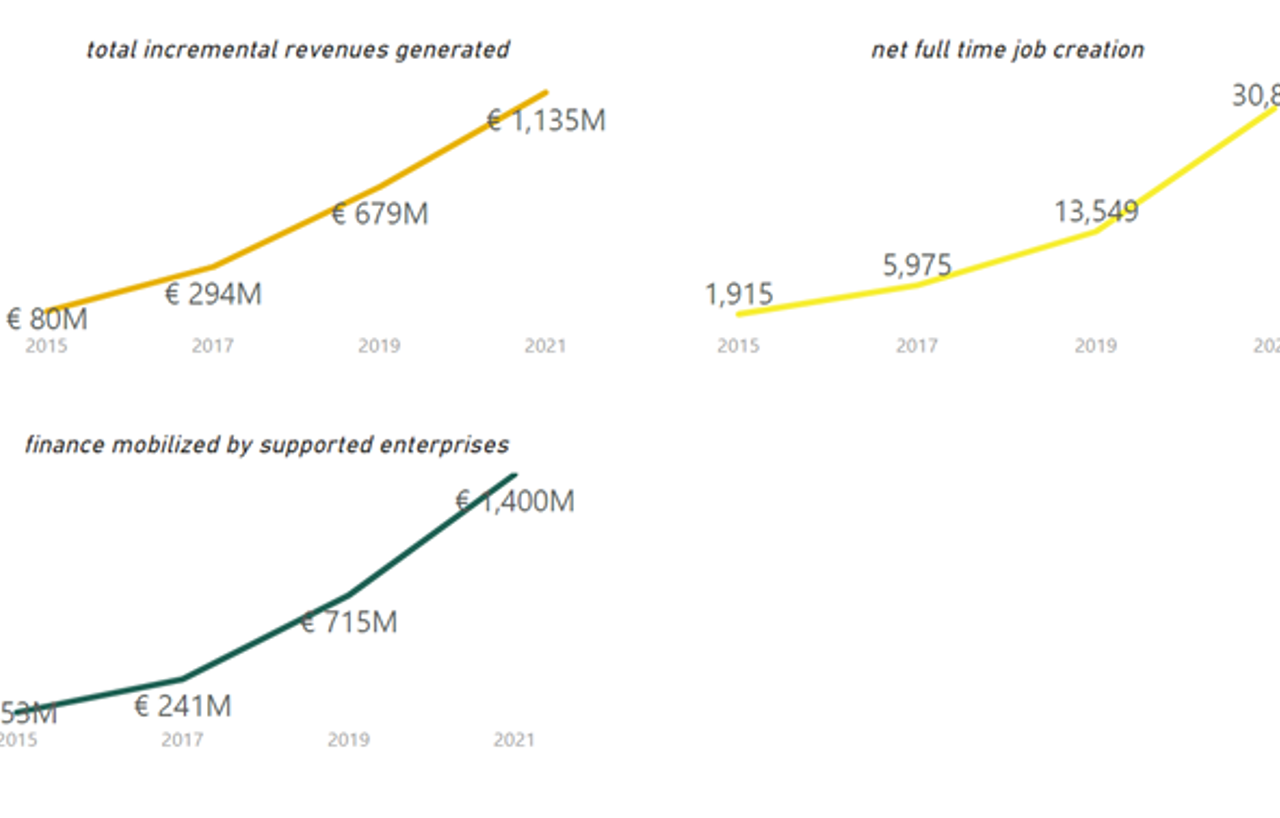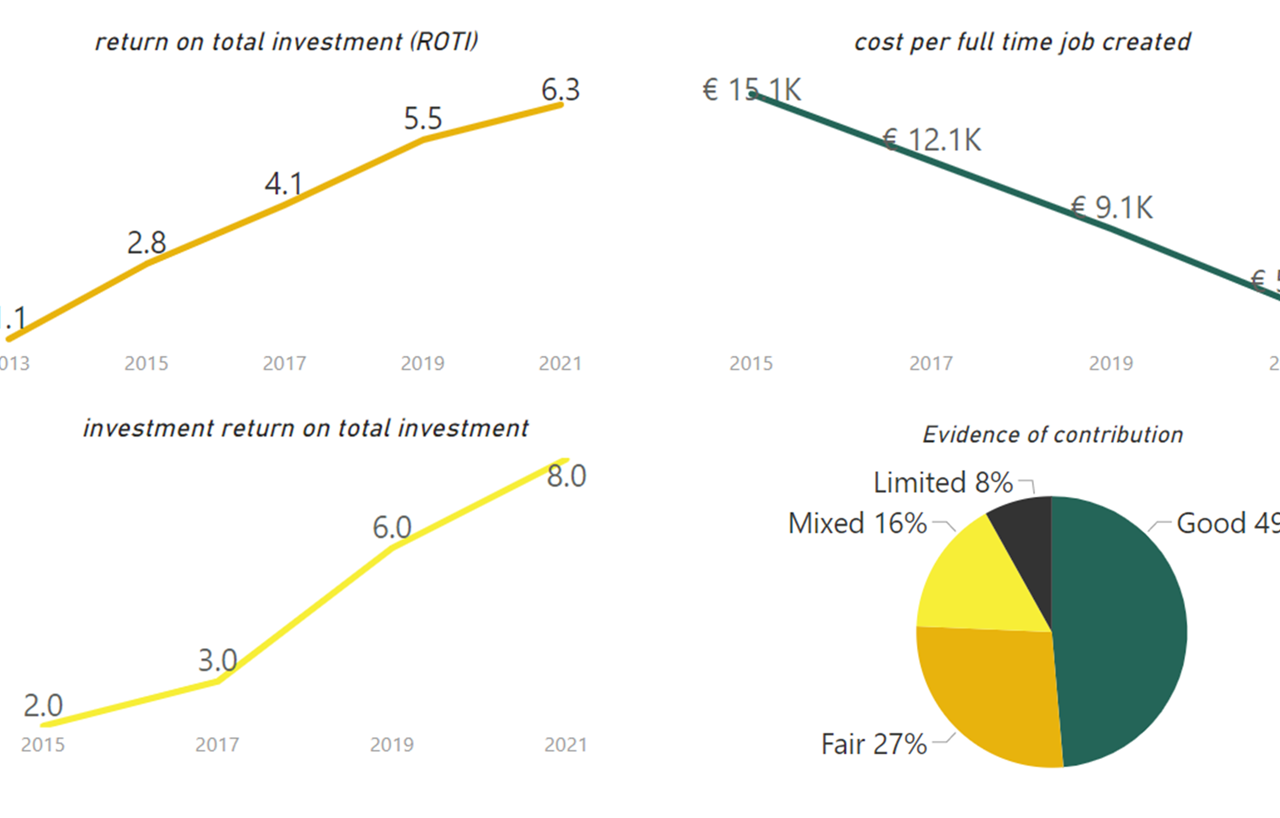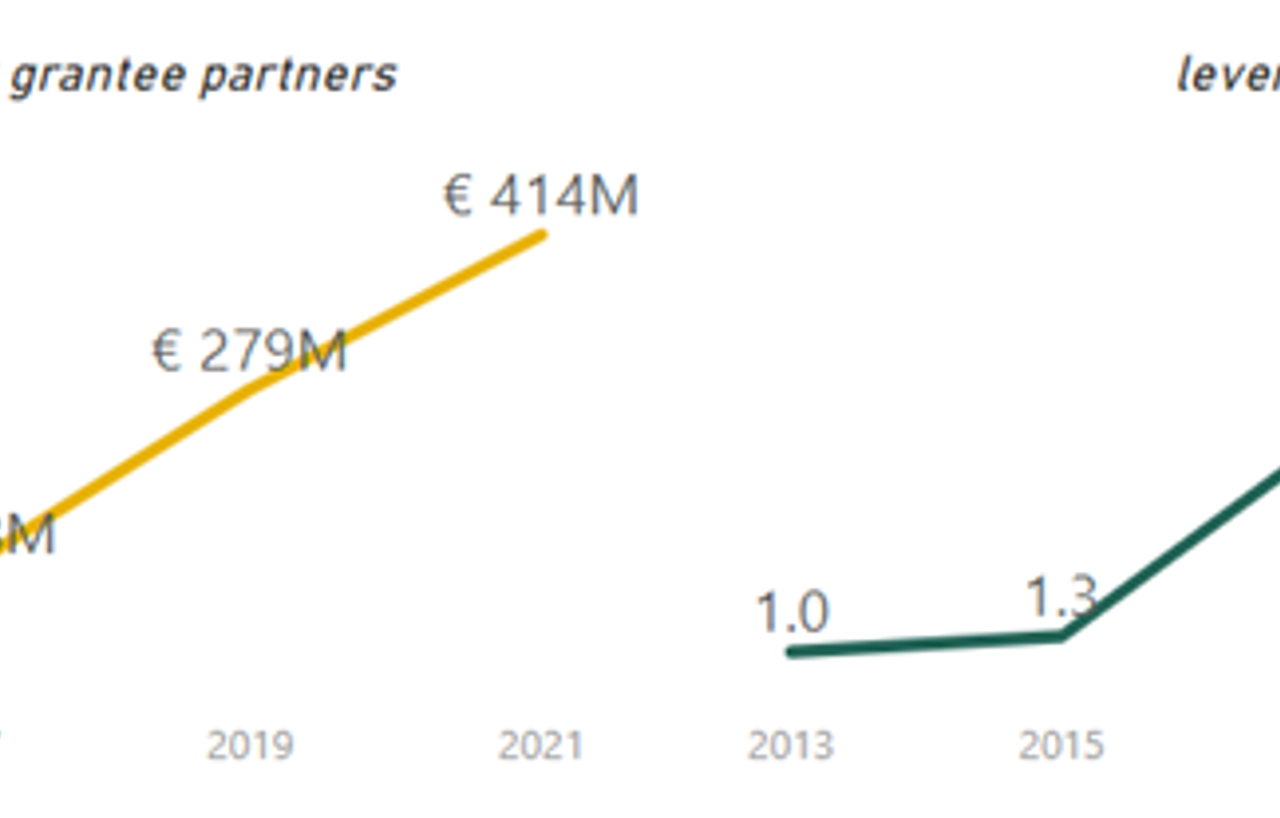COVID-19 sent waves of turbulence around the world. Lockdowns were implemented across the geographies in which our partners operate and economies constricted. The World Bank estimate that 100 million additional people were pushed into extreme poverty in 2020. How did the entrepreneurs and enterprises our partners support fare through the crisis?
The impact and sustainability consulting firm, Steward Redqueen, drew a sample of 3,500 enterprises supported by thirty of our partners - a subset of our portfolio for whom we have complete business performance information for 2019 and 2020, to help us find out.

Two principle observations emerge, firstly, enterprises supported by our partners performed better than firms interviewed in the World Bank’s COVID-19 Business Pulse Surveys, and secondly, though revenue decreased, 98% of employment was retained.
Resilience in crisis
These figures suggest that enterprises that receive Business Development Services (BDS) are more resilient. The employment figures in particular are encouraging. The high retention - 98% of over 29,000 full time jobs - suggests entrepreneurs are assuming their business will grow again. Moreover, employment is a key indicator in such times of peoples’ ability to resist falling back into poverty. We know some enterprises achieved this by reducing working hours during lockdowns or temporarily moving staff to part-time, often implemented with advice amplified by partners. Employment lost by other enterprises was counteracted by employment generation by a subset of growing enterprises, predominantly in sectors including energy, utilities and healthcare.
Women-led businesses, however, faired relatively less well than their male counterparts. Women entrepreneurs are more prevalent in sectors hardest hit such as hospitality and education, and had to manage the bulk of increased domestic and care responsibilities such as homeschooling.

Digitalisation enabled continued support and advice
A growing trend to use digital technology in the delivery of services hit the fast forward button in 2020. A number of partners had to work out how to deliver their work at a distance, but for those already with significant digital infrastructure, services were extended substantially. For example, one of our strategic partners, the African Management Institute, achieved the following.
- 3,700+ enterprises supported across 30 countries through their Business Survival Bootcamp, Survive to Thrive, and other programs
- 11,560 members after a year of the launch of a support network
- 10 additional BDS providers enabled to continue support to their enterprises by opening up their learning platform and content
Together with Dalberg Advisors and ANDE, Argidius developed a guidebook to help organizations think through what level of digitalisation makes sense, and what the potential pathways are for adopting digital tools, as we tentatively emerge from the pandemic. The Mastercard Center for Inclusive Growth have since launched a digitalization project with ANDE which amongst other activities, is disseminating the guidebook through chapter events across Latin America, Africa and Asia, and is now being developed into an online tool with Accenture Development Partners.
Effective BDS is fundamentally about addressing problems
As enterprises’ circumstances changed rapidly, partners moved quickly to assess clients’ needs and adapted support accordingly. Potentially faced with ruin, one of the most pressing needs during lockdowns was to address entrepreneurs’ emotional needs to enable clear headed decisions subsequently. Another of our strategic partners, Technoserve’s Entrepreneurship Practice, had, within a matter of weeks, developed a survival toolkit for programs to address such needs. Able to draw on lessons working through other shutdowns such as the Nicaraguan crisis in 2018, the toolkit was rolled out to entrepreneurship programs supporting 3,000 enterprises throughout Technoserve’s 29 countries of operation, and published to support the whole sector to adapt.
Successfully supporting enterprises through the crisis placed even more emphasis on characteristics we have found to make for a quality BDS intervention, which we have acronymised as SCALE. Even quite simple changes of approach can yield significant benefits to entrepreneurial growth. We have packaged up the knowledge learned through our work and the work of others into a major report and set of tools to help BDS organisations, and their funders, to implement dimensions of SCALE, proven to increase effectiveness, and as a result, boost SGBs revenues and job creation. Supported with a dissemination campaign, this is our most recent effort, as we seek to influence the sector globally to be more effective.

Core support helps organisations, and their impact, go to the next level
2020 was an immensely demanding year too for partners. Paradoxically it was for a number of partners the most successful year yet for fundraising. This in part reflects the focus over the years on supporting partners such that they are able to develop better organizations’ that can meet the requirements of larger development funders. A third strategic partner, Alterna, for example, was a small but promising organization working in Guatemala’s second city Quetzaltenango, when we first entered into partnership. Fast forward to today, and Alterna are running programmes for small businesses and entrepreneurs across Central America and Mexico, and leading on major programs for the Inter-American Development Bank, the EU, and others. Helping effective organizations to attract significant funding from multiple avenues to support entrepreneurs is a key way in which the resources of funders such as ourselves can sustainably scale impact.





